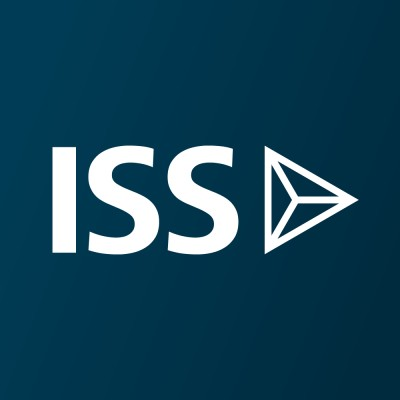Korea Zinc's EGM: A Crucial Crossroad for Corporate Governance and National Security
January 25, 2025, 4:54 pm

Location: United States, California, San Francisco
Employees: 201-500
Founded date: 2003

Location: United States, Maryland, Rockville
Employees: 1001-5000
Founded date: 1985
Korea Zinc stands at a pivotal moment. The recent extraordinary general meeting (EGM) held on January 23, 2025, in Seoul, was not just a routine corporate gathering. It was a battleground for control, governance, and the future of a key player in South Korea's industrial landscape. The stakes were high, and the implications reached far beyond the boardroom.
The EGM saw the approval of six out of eight proposed agenda items. Among these, the introduction of a cumulative voting system and the capping of the board size were significant victories for minority shareholders. These changes are like a breath of fresh air in a room that had grown stale with the dominance of major stakeholders. The cumulative voting system allows shareholders to cast multiple votes, empowering those with smaller stakes. It’s a tool designed to level the playing field, ensuring that every voice counts.
However, not all proposals were met with open arms. The push for an executive officer system, backed by MBK Partners and Young Poong, was met with resistance. Their vision for improved corporate governance was rejected, a clear signal that the existing management structure remains firmly in place. This rejection highlights the ongoing tug-of-war between traditional governance models and calls for reform.
The approval of a stock split, reducing the par value per share from KRW 5,000 to KRW 500, is another strategic move. This maneuver is akin to throwing a lifeline to minority investors, increasing the number of shares in circulation and making them more accessible. It’s a calculated effort to attract a broader base of investors, a necessary step in a market that thrives on participation.
The appointment of new independent directors further enhances the narrative of change. With seven new board members, including esteemed academics and industry veterans, Korea Zinc is signaling a commitment to transparency and diversity. This shift is crucial in a landscape where governance is often scrutinized. Independent oversight can act as a safeguard against the potential pitfalls of concentrated power.
The labor union's presence at the EGM was a powerful reminder of the human element in corporate decisions. Their protest, advocating for the protection of national interests, underscored the importance of Korea Zinc as a cornerstone of South Korea's economy. The union's message was clear: the fate of the company is intertwined with the livelihoods of its workers and the technological integrity of the nation.
The backdrop of this meeting is steeped in geopolitical tension. The National Pension Service (NPS), the world's third-largest pension fund, threw its weight behind the current management. This endorsement is not merely a financial decision; it reflects a broader commitment to safeguarding national interests. The NPS's support for the cumulative voting system and board size limitations aligns with recommendations from global advisory firms, marking a consensus on the need for stability in a key industry.
Concerns about foreign influence loom large. The involvement of MBK Partners, with ties to the China Investment Corporation, has raised alarms in both South Korean and U.S. political circles. The potential for technology transfer to China is a specter that haunts discussions about Korea Zinc's future. U.S. lawmakers have voiced their apprehensions, urging a careful evaluation of the implications for national security. This international dimension adds layers of complexity to an already intricate corporate landscape.
Korea Zinc's management has positioned itself as a guardian of national interests. They emphasize the importance of technological competitiveness and sustainable development. This narrative is not just about profits; it’s about preserving a national asset. The company’s leadership is keenly aware that their decisions resonate beyond the balance sheet, impacting the broader industrial ecosystem.
As the dust settles from the EGM, the path forward is fraught with challenges. The rejection of certain proposals indicates a resistance to change, but the approved measures signal a willingness to adapt. The cumulative voting system and board size limitations are steps toward a more inclusive governance model. However, the shadow of external pressures and internal dissent remains.
The labor union's commitment to protecting jobs and technology is a reminder that corporate decisions have real-world consequences. The stakes are not just financial; they are deeply personal. The employees of Korea Zinc are not just cogs in a machine; they are vital contributors to a national narrative.
In conclusion, Korea Zinc's recent EGM was more than a corporate formality. It was a reflection of the intricate dance between governance, shareholder rights, and national security. As the company navigates this complex landscape, the choices made today will echo into the future. The road ahead is uncertain, but the commitment to protecting both corporate integrity and national interests is a guiding light. In this high-stakes game, every decision counts, and the repercussions will be felt far beyond the boardroom walls.
The EGM saw the approval of six out of eight proposed agenda items. Among these, the introduction of a cumulative voting system and the capping of the board size were significant victories for minority shareholders. These changes are like a breath of fresh air in a room that had grown stale with the dominance of major stakeholders. The cumulative voting system allows shareholders to cast multiple votes, empowering those with smaller stakes. It’s a tool designed to level the playing field, ensuring that every voice counts.
However, not all proposals were met with open arms. The push for an executive officer system, backed by MBK Partners and Young Poong, was met with resistance. Their vision for improved corporate governance was rejected, a clear signal that the existing management structure remains firmly in place. This rejection highlights the ongoing tug-of-war between traditional governance models and calls for reform.
The approval of a stock split, reducing the par value per share from KRW 5,000 to KRW 500, is another strategic move. This maneuver is akin to throwing a lifeline to minority investors, increasing the number of shares in circulation and making them more accessible. It’s a calculated effort to attract a broader base of investors, a necessary step in a market that thrives on participation.
The appointment of new independent directors further enhances the narrative of change. With seven new board members, including esteemed academics and industry veterans, Korea Zinc is signaling a commitment to transparency and diversity. This shift is crucial in a landscape where governance is often scrutinized. Independent oversight can act as a safeguard against the potential pitfalls of concentrated power.
The labor union's presence at the EGM was a powerful reminder of the human element in corporate decisions. Their protest, advocating for the protection of national interests, underscored the importance of Korea Zinc as a cornerstone of South Korea's economy. The union's message was clear: the fate of the company is intertwined with the livelihoods of its workers and the technological integrity of the nation.
The backdrop of this meeting is steeped in geopolitical tension. The National Pension Service (NPS), the world's third-largest pension fund, threw its weight behind the current management. This endorsement is not merely a financial decision; it reflects a broader commitment to safeguarding national interests. The NPS's support for the cumulative voting system and board size limitations aligns with recommendations from global advisory firms, marking a consensus on the need for stability in a key industry.
Concerns about foreign influence loom large. The involvement of MBK Partners, with ties to the China Investment Corporation, has raised alarms in both South Korean and U.S. political circles. The potential for technology transfer to China is a specter that haunts discussions about Korea Zinc's future. U.S. lawmakers have voiced their apprehensions, urging a careful evaluation of the implications for national security. This international dimension adds layers of complexity to an already intricate corporate landscape.
Korea Zinc's management has positioned itself as a guardian of national interests. They emphasize the importance of technological competitiveness and sustainable development. This narrative is not just about profits; it’s about preserving a national asset. The company’s leadership is keenly aware that their decisions resonate beyond the balance sheet, impacting the broader industrial ecosystem.
As the dust settles from the EGM, the path forward is fraught with challenges. The rejection of certain proposals indicates a resistance to change, but the approved measures signal a willingness to adapt. The cumulative voting system and board size limitations are steps toward a more inclusive governance model. However, the shadow of external pressures and internal dissent remains.
The labor union's commitment to protecting jobs and technology is a reminder that corporate decisions have real-world consequences. The stakes are not just financial; they are deeply personal. The employees of Korea Zinc are not just cogs in a machine; they are vital contributors to a national narrative.
In conclusion, Korea Zinc's recent EGM was more than a corporate formality. It was a reflection of the intricate dance between governance, shareholder rights, and national security. As the company navigates this complex landscape, the choices made today will echo into the future. The road ahead is uncertain, but the commitment to protecting both corporate integrity and national interests is a guiding light. In this high-stakes game, every decision counts, and the repercussions will be felt far beyond the boardroom walls.